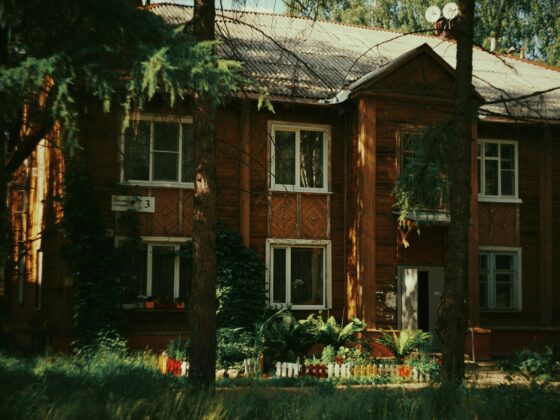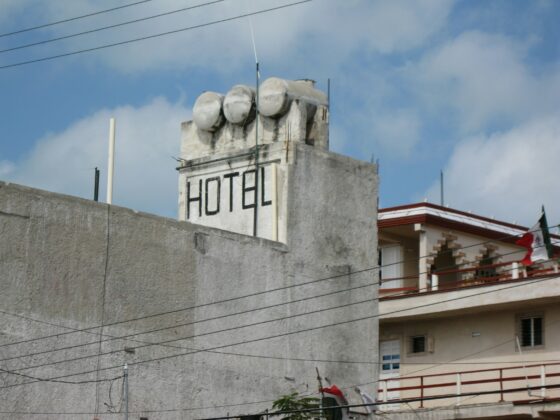In Hong Kong, the recent landscape of hospitality investment has pivoted toward conversion projects, with a strong emphasis on co-living spaces and student accommodations, driven by their high yield potential and rising demand in urban centres. However, this focus has somewhat eclipsed the steady, albeit slower, growth within the traditional hotel sector. While co-living and student housing offer innovative opportunities, the hotel industry remains a cornerstone of hospitality, demonstrating resilience and consistent recovery after the pandemic.
Hotel Sector Recovery in 2024
In 2024, the hotel industry demonstrated significant recovery, with Revenue Per Available Room (RevPAR) reaching 90% of 2018 pre-COVID levels, reflecting a strong rebound driven by Average Daily Rate (ADR). In particular, High Tariff A hotels, comparable to luxury and upper-upscale segments in STR classifications, have not only regained lost ground but have surpassed 2018 benchmarks, with Average Daily Rates (ADR) climbing 4% above pre-COVID figures and reached HK$2,238 per room night, highlighting the sustained demand for premium hotel experiences.
Visitor arrivals saw a sharp recovery in the first half of 2023, reaching over 50% of pre-COVID levels, with further progress in 2024. Full-year 2024 figures show total visitor numbers down 32% and overnight visitors down 25% compared to 2018. The short-haul market, excluding mainland Chinese tourists, exhibited the strongest recovery, with visitor numbers only 9% below 2018 levels and overnight visitor spending just 3% lower.
Boosting Occupancy Rates in 2025
In 2025, hotel revenue managers are focusing on boosting occupancy rates, the final piece of the recovery puzzle. While April 2025 year-to-date ADR has adjusted downward by 11% year-on-year, occupancy rates have improved by 200 basis points, reflecting continued progress in market recovery.
Hong Kong’s hospitality market currently presents various investment-ready assets including rare investment opportunities for upper upscale and luxury hotels. These high-end properties are particularly attractive due to their resilience, as they are less reliant on Chinese group travellers and enjoy sustained spending power among affluent individual travellers and international visitors. This makes them attractive for investors seeking stable returns in a dynamic market.
Several key factors to consider shaping the current market landscape:
1. Limited new supplies
As of March 2025, Hong Kong’s hotel market comprises 320 hotels with a total of 92,907 rooms, according to the Hong Kong Tourism Board. The sector has experienced a steady growth in supply over the past decade. CBRE Research indicates that the cumulative annual growth rate (CAGR) for hotel rooms was 2.3% from 2013 to 2018, slowing to 1.3% from 2018 to 2024.
Looking ahead, the market anticipates a more modest growth trajectory, with four planned hotel developments from 2025 onward, projecting a CAGR of 0.3% over the next five years.
— Source: Source: CBRE
This data excludes hotels undergoing or potentially converting to student accommodation or co-living spaces, where hotel licenses are retained but most rooms serve long-term residents. This trend reduces the number of rooms available for short-term guests, easing competitive pressures within the traditional hotel market. If demand continues to recover and occupancy rates reach pre-COVID levels, High Tariff A hotels stand to benefit most, with strong potential for ADR growth driven by sustained demand for premium services.
2. Room to recover in Visitor Spending
In 2024, Hong Kong’s hotel industry saw a 24% decline in overnight visitor spending compared to 2018, mirroring a 25% drop in overnight visitor numbers, indicating stable per-visitor hotel expenditure despite a smaller overall market. The smaller market cap is arriving from downturn in Mainland Chinese tourists – who typically occupy around 70% of the overall number of visitors. Mainland China domestic travel has surged to 5.615 billion in 2024, surpassing 2018 levels, while outbound travel reached146 million, slightly below 2018, and mainly skewed towards long haul travels outside of Asia to Europe and North America. As of 2024, Hong Kong currently covers around 23% of the total Mainland China outbound travellers. Recovery in this key segment may be gradual due to China’s focus on internal consumption but is expected to improve over time.
Meanwhile, the uptrend of Hong Kong residents’ outbound travel, particularly to Shenzhen, with a 14% rise in overseas spending (2024 vs. 2017-19 average), raises concerns. While the Hong Kong overall hotels average F&B and other departmental revenue has seen 2.4% growth since 2018, more affordable alternatives available across the border could weigh in enhanced competition.
To optimise profitability or cash flow, operators may consider strategies such as full-load or outsourcing F&B operations.
3. Hotel operation is becoming more expensive
Managing operational expenses (Opex) in Hong Kong’s hotel industry has become increasingly challenging. The industry faces a persistent staffing shortage, as many workers left the sector during the pandemic. According to the latest data from the Hong Kong Tourism Board, payroll expenses as a share of total revenue rose by 6.4% from 2018 to 2023, and EBITDA margins declined by about 10-15 percentage points over the same period.
Additionally, starting January 1, 2025, the new 3% hotel accommodation tax has been introduced. This is being mostly absorbed by operators and owners to avoid deterring price-sensitive guests.
Upper upscale hotels are better positioned to manage these challenges. Their guests are generally less price-sensitive and they offer more flexibility in staffing. To optimise profitability or cash flow, operators may consider strategies such as full-load or outsourcing F&B operations. Active expense management is essential for maintaining sustainable returns.
4. Government initiative for infrastructure development
From 2025 onwards, Hong Kong’s infrastructure development and government initiatives are significantly boosting its tourism, hospitality, and MICE (Meetings, Incentives, Conferences, and Exhibitions) sectors.
The Kai Tak Sports Park, opened March 2025, has become a major event venue. Its 50,000-seat stadium has already hosted a number of world-class, mega events, such as the Cathay Pacific/HSBC Hong Kong Sevens in March 2025, Coldplay World Tour in April 2025, and will be hosting BLACKPINK’s World Tour in January 2026.
Meanwhile, the third runway at Hong Kong International Airport and Terminal 2 Expansion, fully integrated by 2025, are expected to improve the airport’s capacity to handle 120 million passengers annually, improving accessibility for international MICE delegates and tourists.
The Hong Kong government is actively supporting the MICE industry through initiatives like the Hong Kong Tourism Board’s funding schemes and streamlined visa processes for event attendees, aiming to position Hong Kong as Asia’s premier MICE hub. New venues, such as the WestK Performing Arts Centre and Phase 2 of AsiaWorld-Expo, will further expand capacity for large-scale events, attracting both business and leisure travellers.
5. External Factors need to be stabilised
Hong Kong’s tourism industry also faces several external factors that shape its outlook in 2025 and beyond. The exchange rate, gradually easing after a period of a strong US dollar, is expected to make Hong Kong a more affordable destination, potentially driving growth in visitor arrivals from key markets like the US and Europe. However, uncertainties persist due to ongoing trade tensions, which remain in flux and could impact global travel demand and economic stability. These trade policies may affect tourist spending power and confidence, particularly from markets sensitive to economic shifts. To balance these dynamics, Hong Kong must leverage its improving affordability while navigating the challenges posed by global trade uncertainties to sustain tourism growth.
With our deep expertise in hospitality valuations and advisory, supported by extensive resources and data, our team is ideally positioned to assist developers, owners, operators, investors, or new entrants. CBRE’s Valuation & Advisory Services team offers guidance on site assessments, development feasibility, acquisitions, disposals, redevelopment, repurposing, cashflow analysis, and financial reporting. Contact our experts to explore opportunities in Hong Kong’s promising hospitality sector with informed decision.
Harry Ha
Senior Manager, Valuation & Advisory Services, Hong Kong
+852 2820 8192
CBRE Hotels














